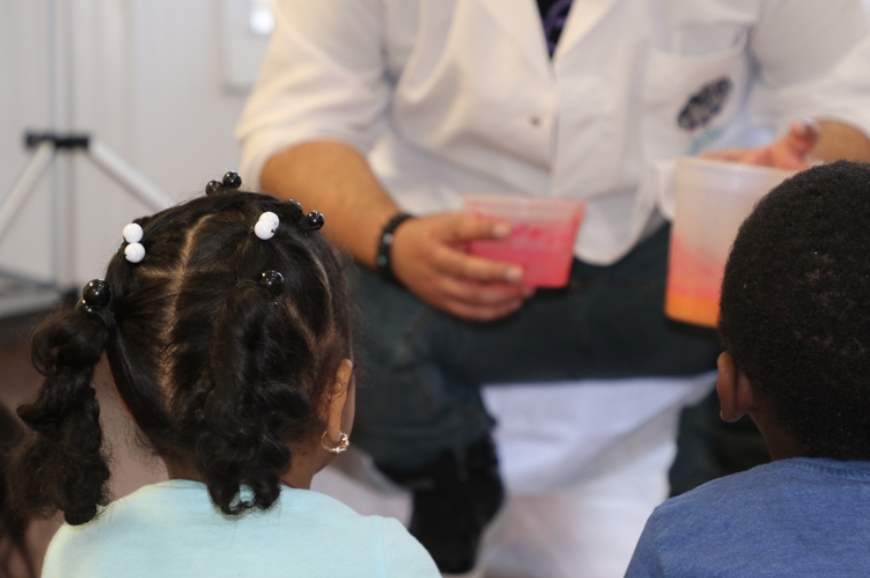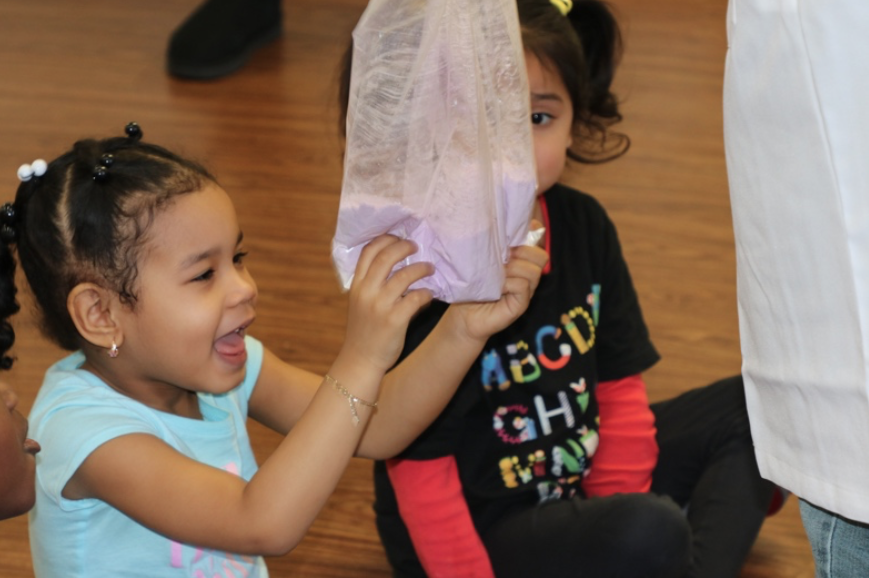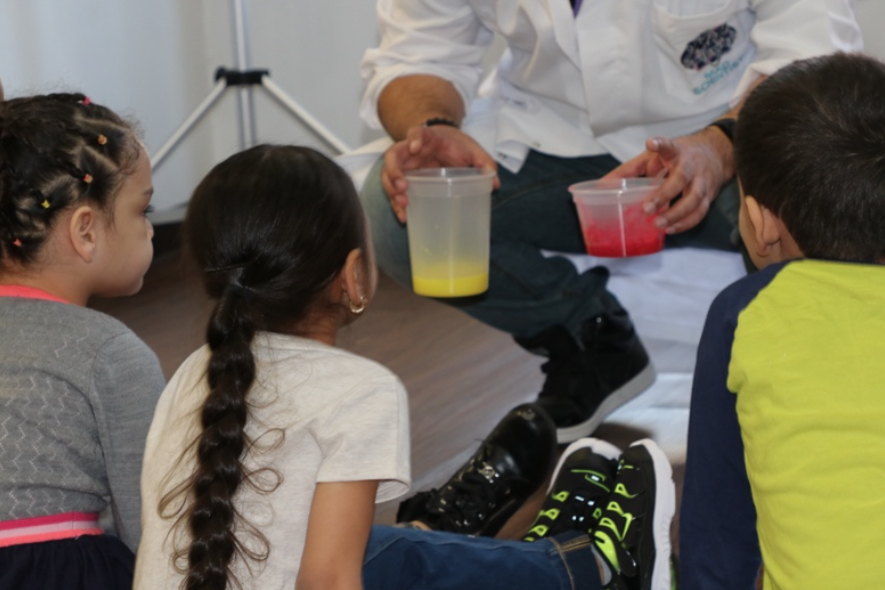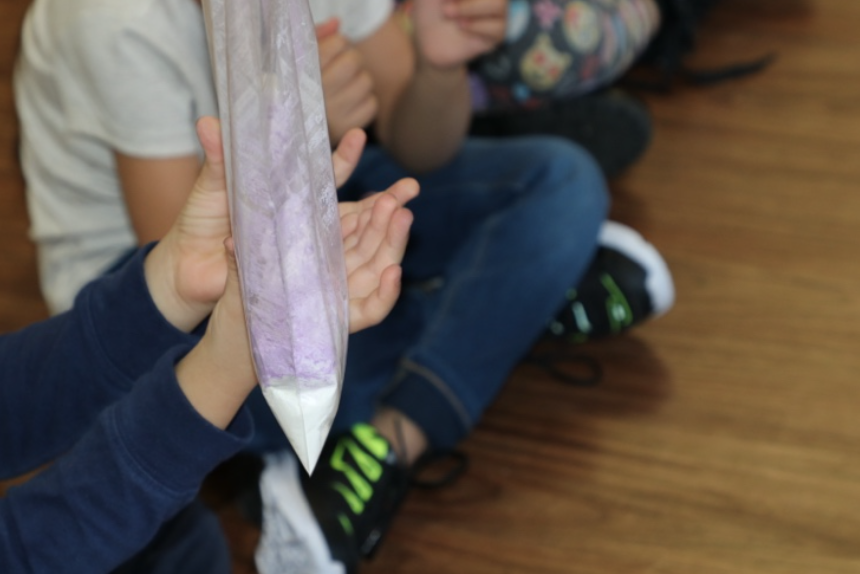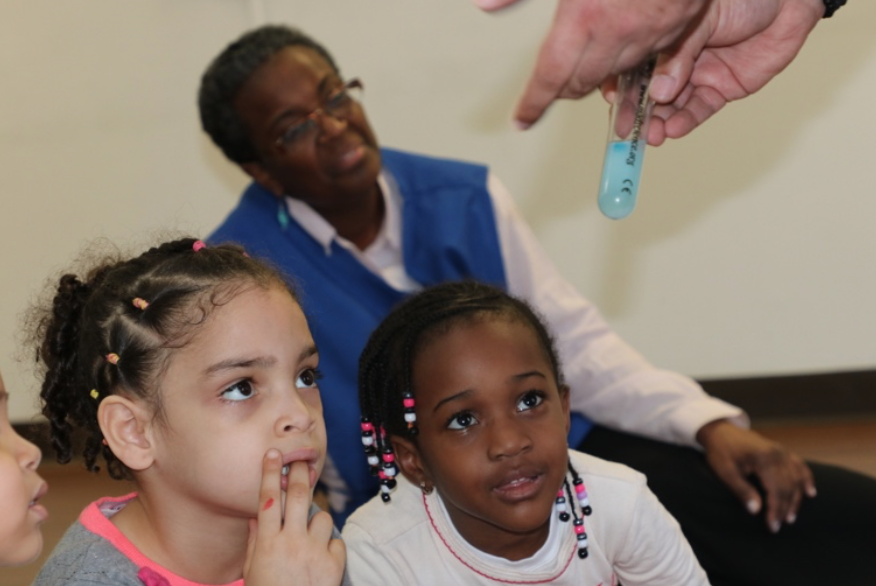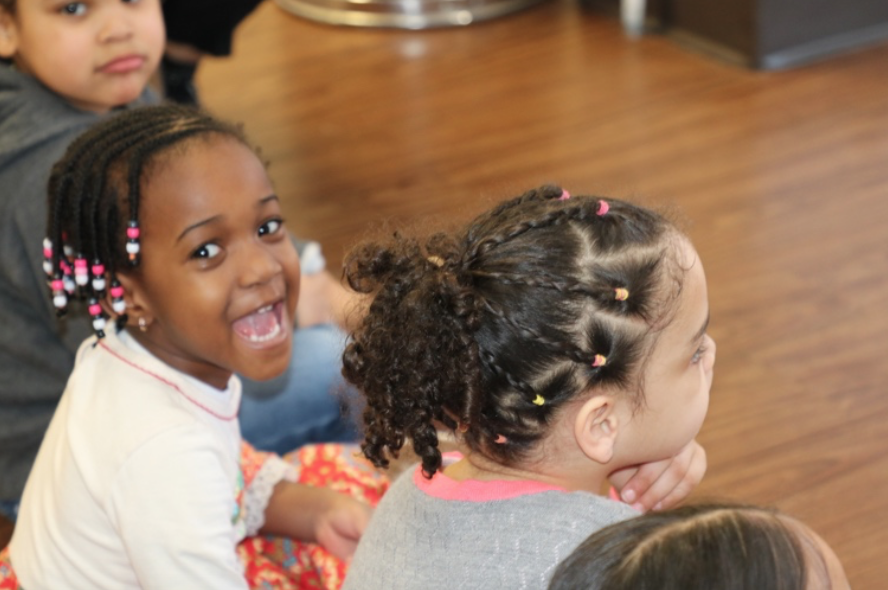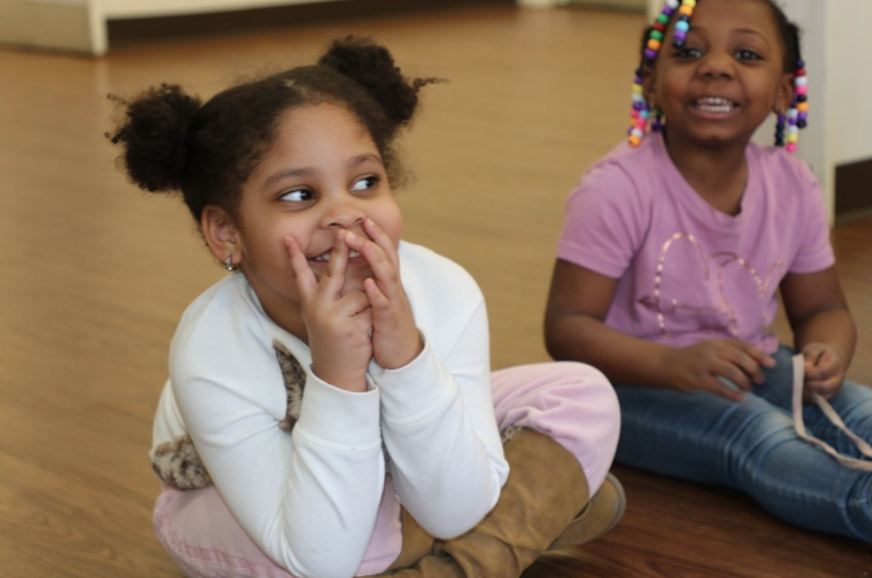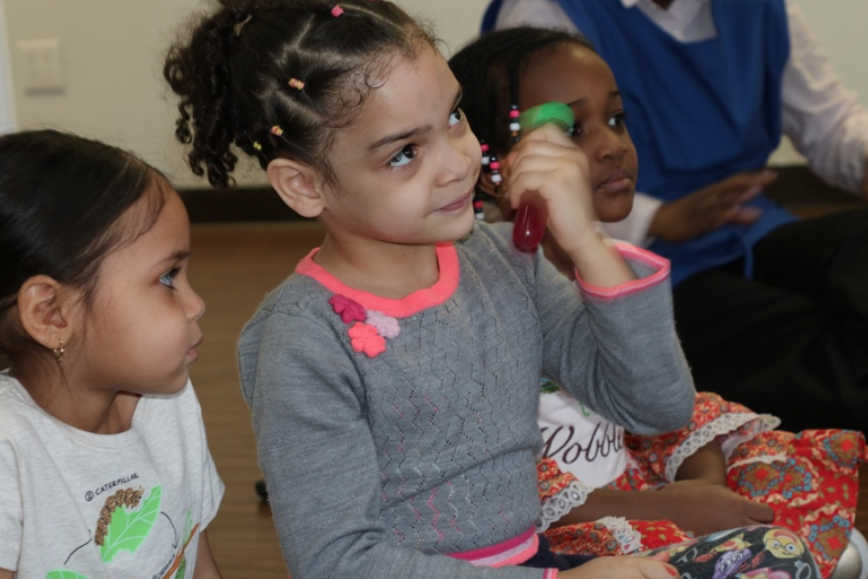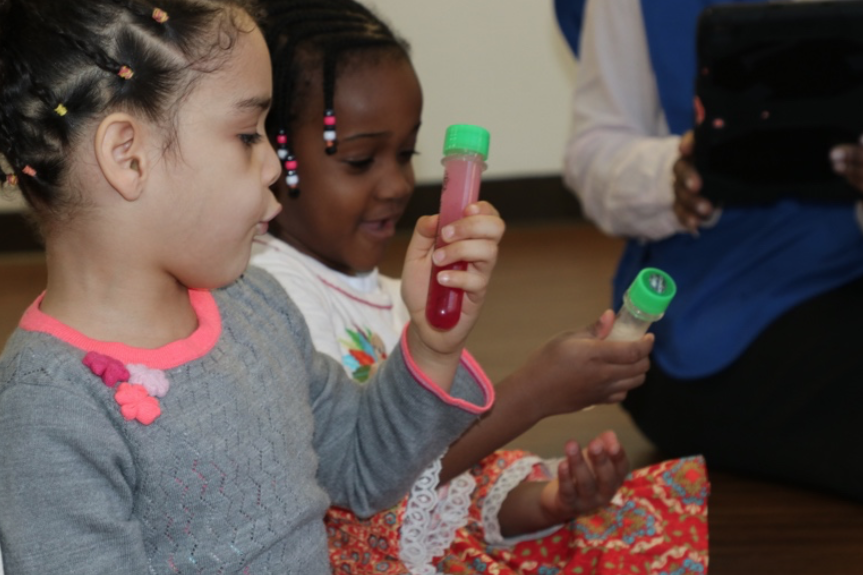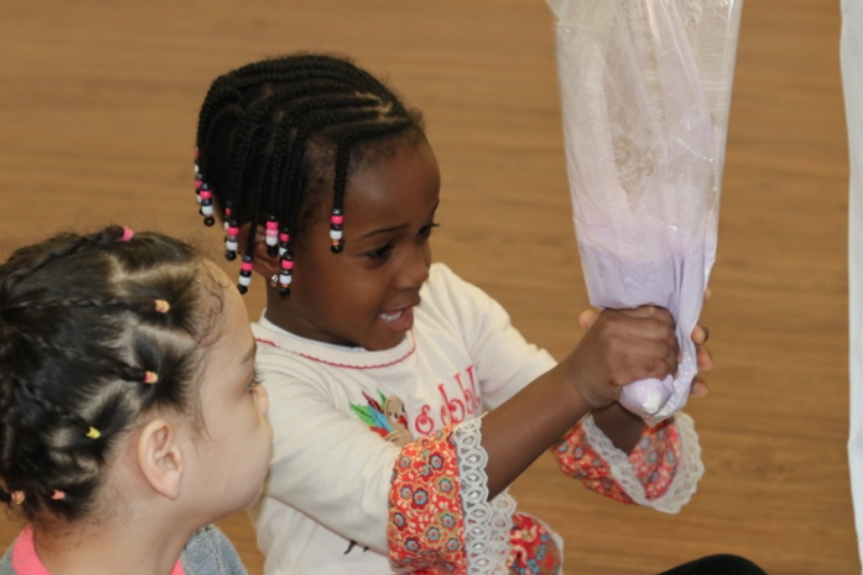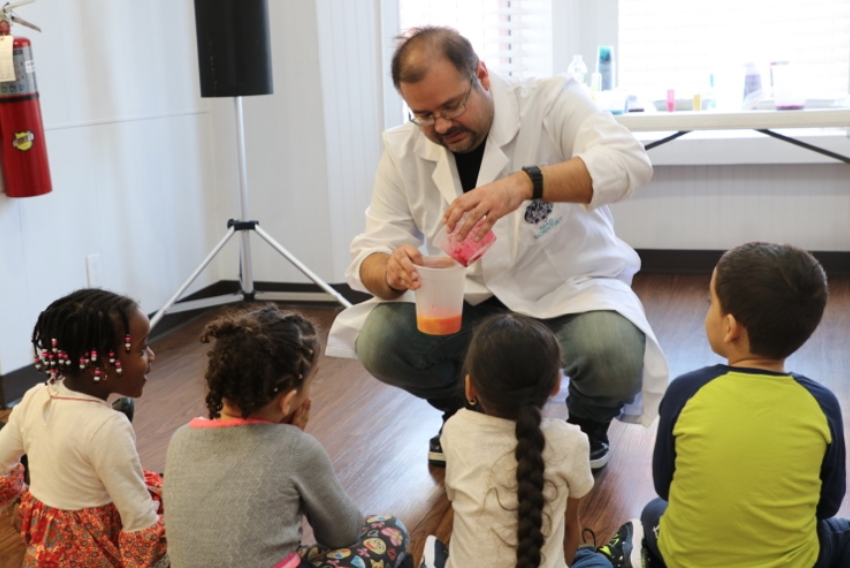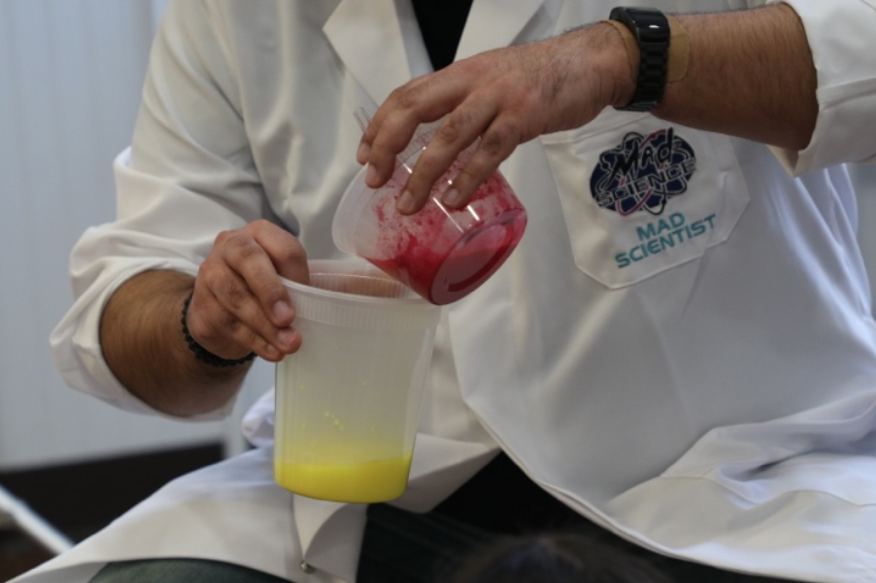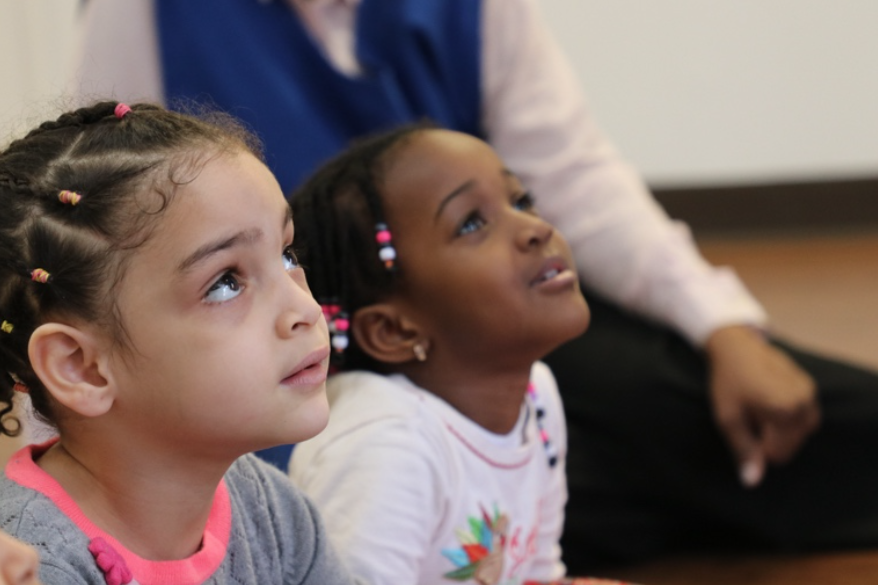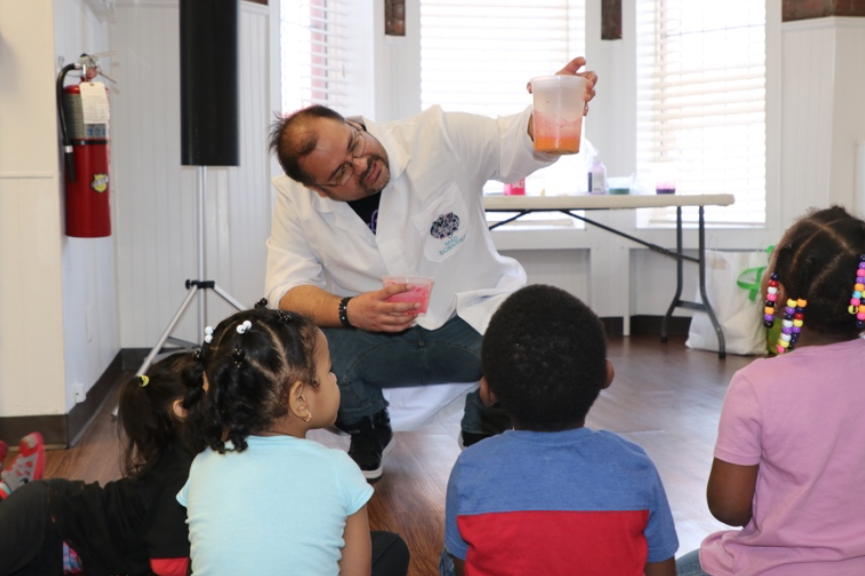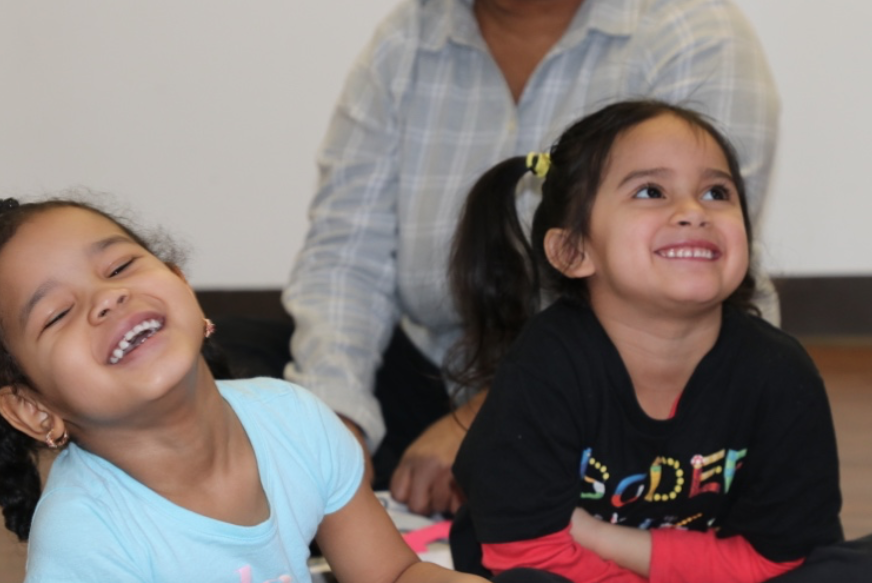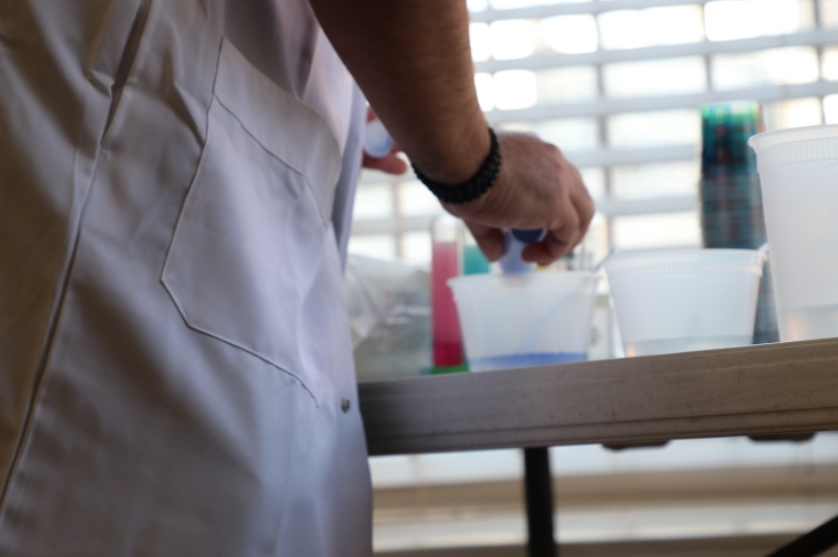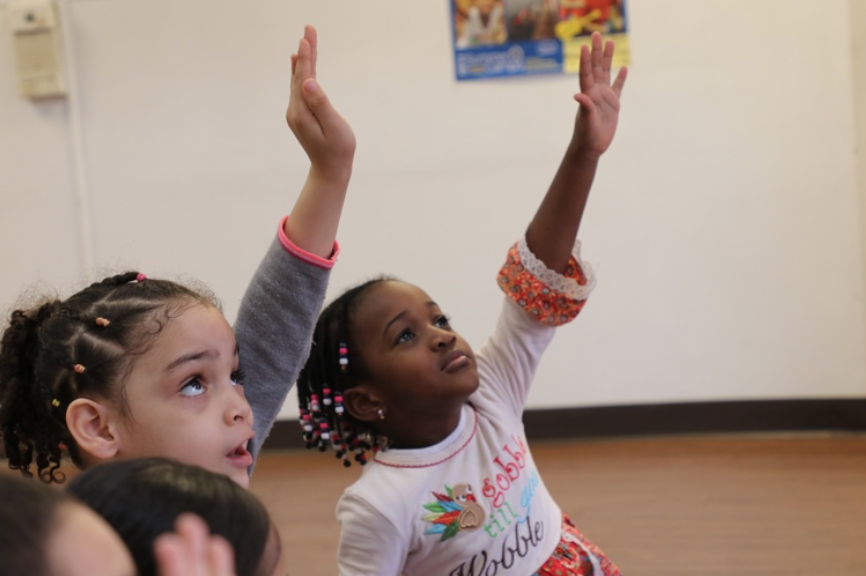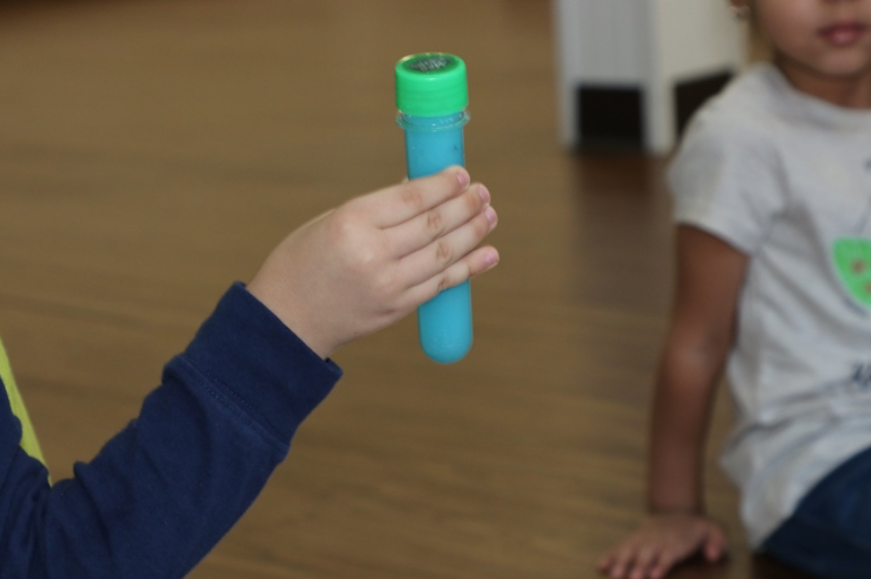Earlier this month, John Theodorou of Mad Science, which produces interactive STEM lessons, visited Prospect Early Childhood Education Center for a hands-on chemistry workshop.
As the children surveyed the colorful liquids, beakers, and test tubes arranged on a table in the front of the room, Theodorou introduced himself as Proton John, a Mad Scientist.
They were initially skeptical of Theodorou’s title, given his cheerful disposition.
“When I say mad, I don’t mean angry,” he clarified. “I mean that we do things differently.”
He went on to delve into the workshop’s agenda, which was to feature three experiments, all putting a pre-K-friendly spin on fundamental STEM concepts.
“Chemistry is the science of mixing things,” he said. “And you guys mix things all the time.”
When the children denied this, Theodorou used it as an opportunity to show them the chemistry in their everyday lives.
“Who likes hot chocolate?” he asked. After a unanimous positive response, he elaborated, “What do you do? You get some hot water. You get some hot milk. You put it in your favorite cup and then you get a hot chocolate mix.”
In other words, he explained, their favorite drink was made possible by chemistry.
This exchange was the perfect transition into Theodorou’s first experiment, in which he demonstrated the effects of mixing different colored liquids.
The kids then had the opportunity to try for themselves, as Theodorou handed out brightly colored test tubes filled with liquids for them to mix.
For their last experiment, Theodorou taught the children how to make their own play-dough, using flour, salt, and cream of tartar.
The kids took turns kneading the dough before receiving their own individual cups, as a souvenir of the lesson.
Following the workshop, Theodorou emphasized the importance of exposing children to STEM concepts in their early years.
“If you wait until they’re in high school and they get all these lectures, they’re going to tune out like that,” he noted. “Right now, they’re like sponges, so they’ll really absorb something and learn it and remember it.”
He also credited the workshop’s playful and engaging atmosphere with laying the groundwork for young learners’ relationship with STEM in the future.
“If you start with stuff like this, where it’s hands-on and really silly, the word science is no longer a scary word. It’s not something to be afraid of,” he explained. “They’ll say, ‘oh, I remember I did science. Science is in my world every day’.”

